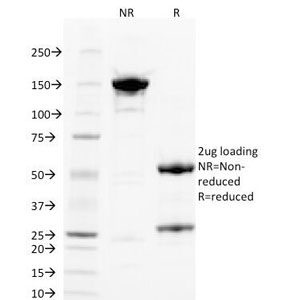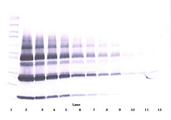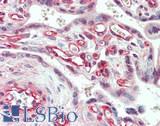Login
Registration enables users to use special features of this website, such as past
order histories, retained contact details for faster checkout, review submissions, and special promotions.
order histories, retained contact details for faster checkout, review submissions, and special promotions.
Forgot password?
Registration enables users to use special features of this website, such as past
order histories, retained contact details for faster checkout, review submissions, and special promotions.
order histories, retained contact details for faster checkout, review submissions, and special promotions.
Quick Order
Products
Antibodies
ELISA and Assay Kits
Research Areas
Infectious Disease
Resources
Purchasing
Reference Material
Contact Us
Location
Corporate Headquarters
Vector Laboratories, Inc.
6737 Mowry Ave
Newark, CA 94560
United States
Telephone Numbers
Customer Service: (800) 227-6666 / (650) 697-3600
Contact Us
Additional Contact Details
Login
Registration enables users to use special features of this website, such as past
order histories, retained contact details for faster checkout, review submissions, and special promotions.
order histories, retained contact details for faster checkout, review submissions, and special promotions.
Forgot password?
Registration enables users to use special features of this website, such as past
order histories, retained contact details for faster checkout, review submissions, and special promotions.
order histories, retained contact details for faster checkout, review submissions, and special promotions.
Quick Order
| Catalog Number | Size | Price |
|---|---|---|
| LS-C391649-20 | 20 µg (0.2 mg/ml) | $371 |
| LS-C391649-100 | 100 µg (0.2 mg/ml) | $574 |
Monoclonal Mouse anti‑Human PGF / PLGF Antibody (clone PLGF/93) LS‑C391649
Monoclonal Mouse anti‑Human PGF / PLGF Antibody (clone PLGF/93) LS‑C391649
Antibody:
PGF / PLGF Mouse anti-Human Monoclonal (PLGF/93) Antibody
Application:
ELISA, Func
Reactivity:
Human
Format:
Unconjugated, Unmodified
Other formats:
Toll Free North America
 (800) 227-6666
(800) 227-6666
For Research Use Only
Overview
Antibody:
PGF / PLGF Mouse anti-Human Monoclonal (PLGF/93) Antibody
Application:
ELISA, Func
Reactivity:
Human
Format:
Unconjugated, Unmodified
Other formats:
Specifications
Description
PLGF antibody LS-C391649 is an unconjugated mouse monoclonal antibody to human PLGF (PGF). Validated for ELISA and Func.
Target
Human PGF / PLGF
Synonyms
PGF | D12S1900 | PGFL | PlGF-2 | Placental growth factor | Placental growth factor-like | PLGF | Placenta growth factor | SHGC-10760
Host
Mouse
Reactivity
Human
(tested or 100% immunogen sequence identity)
Clonality
IgG1,k
Monoclonal
Clone
PLGF/93
Conjugations
Unconjugated
Purification
Protein G purified
Modifications
Unmodified.
Also available Azide-free, BSA-free.
Immunogen
Recombinant human protein.
Specificity
Human PGF / PLGF
Applications
- ELISA
- Functional Assay
Usage
The onset of angiogenesis is believed to be an early event in tumorigenesis and may facilitate tumor progression and metastasis. Several growth factors with angiogenic activity have been described. These include Fibroblast Growth Factor (FGF), Platelet Derived Growth Factor (PDGF), Vascular Endothelial Growth Factor (VEGF) and Placenta Growth Factor (PLGF). Placenta growth factor (PLGF) is a secreted protein primarily produced by placental trophoblasts but also expressed in other endothelial cells and tumors. There are three isoforms, PLGF-1, PLGF-2, and PLGF-3. PLGF-2 is expressed up until week 8 in the placenta. the placental tissues continuously express PLGF-1 and PLGF-3 but only PLGF-1 is found in colon and mammary carcinomas. PLGF acts to stimulate angiogenesis, endothelial growth and migration. PLGF is a powerful promoter of tumor growth and is upregulated in some cancers, and PLGF is thought to aid in atherosclerotic lesions and neovascular growth surrounding the lesion. Also, PLGF appears to aid aldosterone mediated atherosclerosis. Serum levels of PLGF in some cases are used as a potential biomarker for disease or genetic defect. Recent research indicates that PLGF levels are lower in mothers with Down syndrome fetuses. Evidence has suggested VEGF to be an obligatory component in PLGF signaling. While VEGF homodimers and VEGF/PLGF heterodimers function as potent mediators of mitogenic and chemotactic responses in endothelial cells, PLGF homodimers are effectual only at extremely high concentrations. Indeed, many of the physiological effects attributed to VEGF may actually be a result of VEGF/PLGF. VEGF and PLGF share a common receptor, Flt-1, and may also activate Flk-1/KDR. The optimal dilution of the PLGF antibody for each application should be determined by the researcher.
Presentation
1X PBS, 0.1 mg/ml BSA, 0.05% sodium azide
Storage
Store at 2°C to 8°C.
Restrictions
For research use only. Intended for use by laboratory professionals.
About PGF / PLGF
Publications (0)
Customer Reviews (0)
Featured Products
Species:
Human
Applications:
IHC, IHC - Paraffin, Western blot
Species:
Human
Applications:
Western blot, ELISA
Species:
Human
Applications:
Western blot, ELISA
Request SDS/MSDS
To request an SDS/MSDS form for this product, please contact our Technical Support department at:
Technical.Support@LSBio.com
Requested From: United States
Date Requested: 4/8/2025
Date Requested: 4/8/2025













